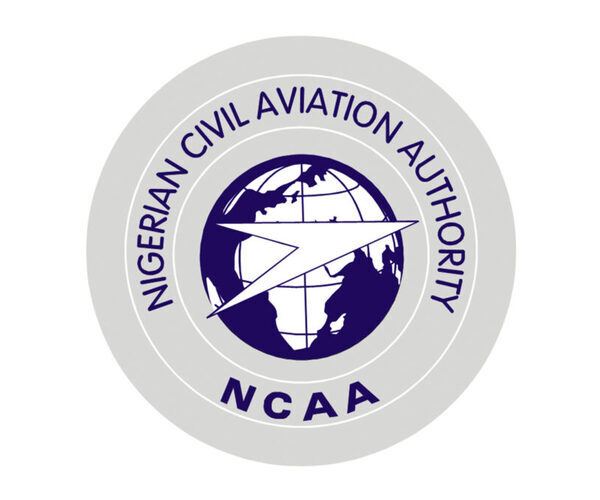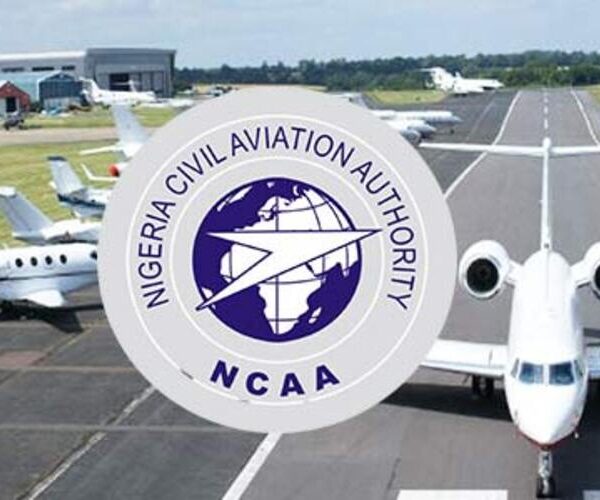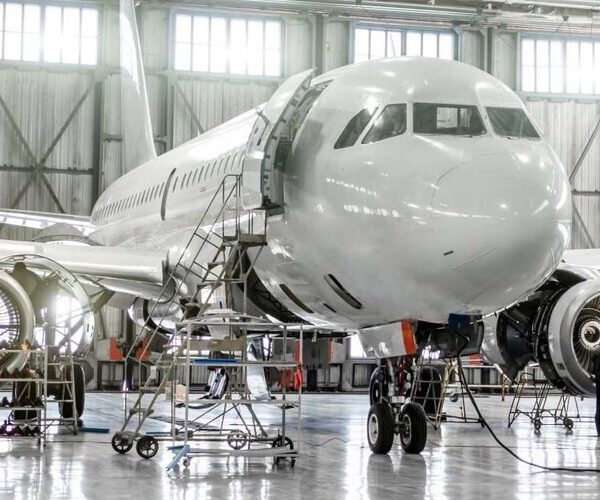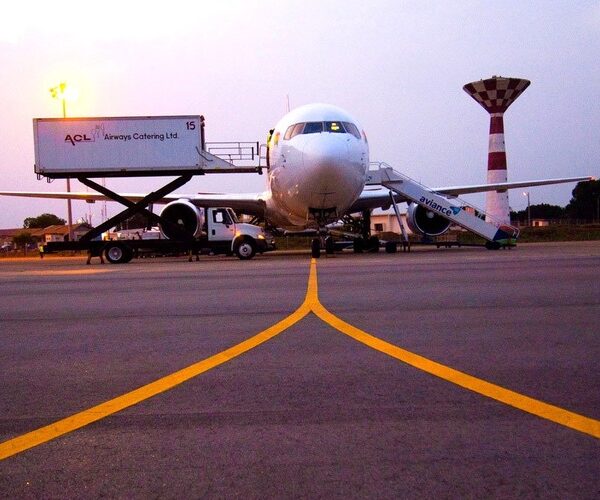- Government Organisation
- Nnamdi Azikiwe International Airport, Abuja, Federal Capital Territory, Nigeria
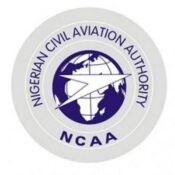
NIGERIAN CIVIL AVIATION AUTHORITY (NCAA)
Who We are
Nigeria Civil Aviation Authority is the regulatory body for aviation in Nigeria. It became autonomous with the passing into law of the Civil Aviation Act 2006 by the National Assembly and assent of the President of the Federal Republic of Nigeria. The Act not only empowers the Authority to regulate Aviation Safety without political interference, but also to carry out oversight functions of Airports, Airspace, Meteorological Services, etc as well as economic regulations of the industry.
By virtue of Section 8 (3) of Civil Aviation Act 2022, Nigeria Civil Aviation Authority (NCAA) is the sole civil aviation regulatory body in Nigeria; this is notwithstanding anything contained in any other law.
It became autonomous with the passing into law of the Civil Aviation Act 2022 by the National Assembly and its assent by the President of the Federal Republic of Nigeria. The Act not only empowers the Authority to regulate Aviation Safety without political interference but to also carry out oversight functions of Airports, Airspace, Meteorological Services, etc as well as economic regulations of the industry.
While its VISION is to be one of the leading Civil Aviation Authority in the world, the Authority’s MISSION is to provide aviation safety and economic regulatory services in the most efficient, most effective, quality technologically- driven manner to the satisfaction and benefit of all stakeholders, consistent with highest international standards and sustainable development of the industry and national economy.
A series of well- coordinated procedures and rules used NCAA in ensuring safety and economic regulatory standards in the aviation industry include Inspection, Operation, Certification, Licensing, Monitoring, Sanction and Enforcement.
Currently, the country has about 20 airports. There are about 39 AOC holders (for schedule and non- schedule flight operations) while about 28 foreign airlines are operating to Nigeria.
Going by the License Crew Data (for current active crew) as at February, 2019: License Pilots, 2133; Certification of validation for Pilots, 175; Aircraft Maintenance Engineer’s License, 1659; Aircraft Maintenance Engineer’s License with validation, 24; Aircraft Dispatchers’ Licence, 588; Air Traffic Controllers (ATC), 372; Cabin Crew License, 2343; Air Traffic Safety Electronic Personnel License, 430; and Aeronautical Station Operators’ License, 105.
Nigeria now boasts of improved aviation infrastructural facilities at the airports’ state of the art navigational aids, modern weather forecasting equipment and highly skilled manpower to ensure safety and comfort of the flying public.
Airlines have continued to bring in brand new aircraft to the industry 737-700 new generation, Regional Jet CRJ 400/900, Dash 8-400Q, Business Jet/Turboprop, Helicopters, B777, Dreamliner B787, Jumbo Jet Boeing 747-400 series as well as brand new Regional Jet Embraer.
Brief History
The Nigerian Civil Aviation Authority (NCAA) has evolved over the years to become a pivotal institution in Nigeria’s aviation sector. Its history is closely intertwined with the development of civil aviation in the country.
The roots of the NCAA can be traced back to the establishment of the Nigerian Civil Aviation Department (CAD) in 1938, during the colonial era. The CAD was responsible for overseeing aviation activities in Nigeria, including regulatory functions and the operation of airports.
Following Nigeria’s independence in 1960, the CAD underwent various transformations to adapt to the changing needs of the aviation industry. In 1976, the Federal Government established the Federal Airports Authority of Nigeria (FAAN) and the Nigerian Airspace Management Agency (NAMA) to manage airports and provide air navigation services, respectively, thereby decentralizing some of the CAD’s functions.
In 1999, the Nigerian Civil Aviation Act was enacted, leading to the establishment of the Nigerian Civil Aviation Authority (NCAA) as an autonomous regulatory body. This marked a significant milestone in the evolution of aviation regulation in Nigeria, as the NCAA was tasked with overseeing all aspects of civil aviation regulation, safety oversight, and economic regulation.
Since its inception, the NCAA has played a crucial role in shaping the aviation landscape in Nigeria. It has continuously worked to enhance safety standards, improve regulatory oversight, and promote the growth and development of the aviation industry.
Our Mission
To provide aviation safety and economic regulation in the most efficient, effective, quality and technology driven manner to the satisfaction and benefit of all stakeholders, consistent with the highest international standards and the sustainable development of the industry and national economy.
Our Vision
To be one of the leading civil aviation authorities in the world.
Our Services
The Nigerian Civil Aviation Authority (NCAA) serves as the regulatory body overseeing civil aviation activities within Nigeria. Established under the Civil Aviation Act of 2006, the NCAA plays a critical role in ensuring the safety, security, and efficiency of Nigeria’s aviation industry.
As the primary regulatory authority, the NCAA is responsible for enforcing regulatory standards and overseeing compliance with national and international aviation regulations. This includes regulating airlines, airports, air navigation services, aircraft maintenance organizations, and aviation personnel.
Key functions of the NCAA include:
- Safety Oversight: The NCAA is tasked with ensuring the safety of civil aviation operations within Nigeria. This involves conducting safety inspections, audits, and oversight activities to assess compliance with safety regulations and standards set by the International Civil Aviation Organization (ICAO).
- Certification and Licensing: The NCAA is responsible for issuing certificates and licenses to aviation entities and personnel, including airlines, pilots, aircraft maintenance engineers, and air traffic controllers. These certifications are essential for ensuring the competence and reliability of aviation operations.
- Airworthiness: The NCAA oversees the airworthiness of aircraft operating within Nigeria’s airspace. This involves approving aircraft designs, issuing certificates of airworthiness, and conducting inspections to ensure that aircraft meet safety standards and are fit for flight.
- Security Oversight: In collaboration with other security agencies, the NCAA is responsible for ensuring the security of civil aviation operations. This includes implementing security measures to prevent acts of unlawful interference, such as terrorism and hijacking.
- Economic Regulation: The NCAA regulates economic aspects of the aviation industry, including setting tariffs, fees, and charges for aviation services. It also monitors market competition and ensures fair and transparent business practices among airlines and other aviation service providers.
- Air Navigation Services: The NCAA oversees the provision of air navigation services, including air traffic control, navigation aids, and communication systems. It works to ensure the safe and efficient flow of air traffic within Nigerian airspace.
- Guidelines and Requirements for Renewal of Travel Agency
- List of Allied Services Providers II
- Guidelines/Requirements for the Registration of Air Freight Forwarders
- Guidelines and Requirements for Registration of Travel Agency (GRANT)
- Guidelines and Requirements for Renewal of In-Flight Catering Service Licence (International Operations)
Summary
Overall, the Nigerian Civil Aviation Authority plays a vital role in promoting the growth and development of Nigeria’s aviation sector while prioritizing safety, security, and regulatory compliance. By upholding international standards and best practices, the NCAA contributes to the safe and efficient operation of civil aviation in Nigeria.
Today, the NCAA stands as a key regulatory authority, responsible for ensuring the safety, security, and efficiency of civil aviation operations within Nigeria. Through its regulatory functions, the NCAA contributes to the sustainable growth and development of Nigeria’s aviation sector, while prioritizing safety and regulatory compliance.
Business Amenities
- Car Parking
- Funding: Federal
Contact Information
Opening Hours
Contact Business
Contact Business
Additional Information
Additional info



